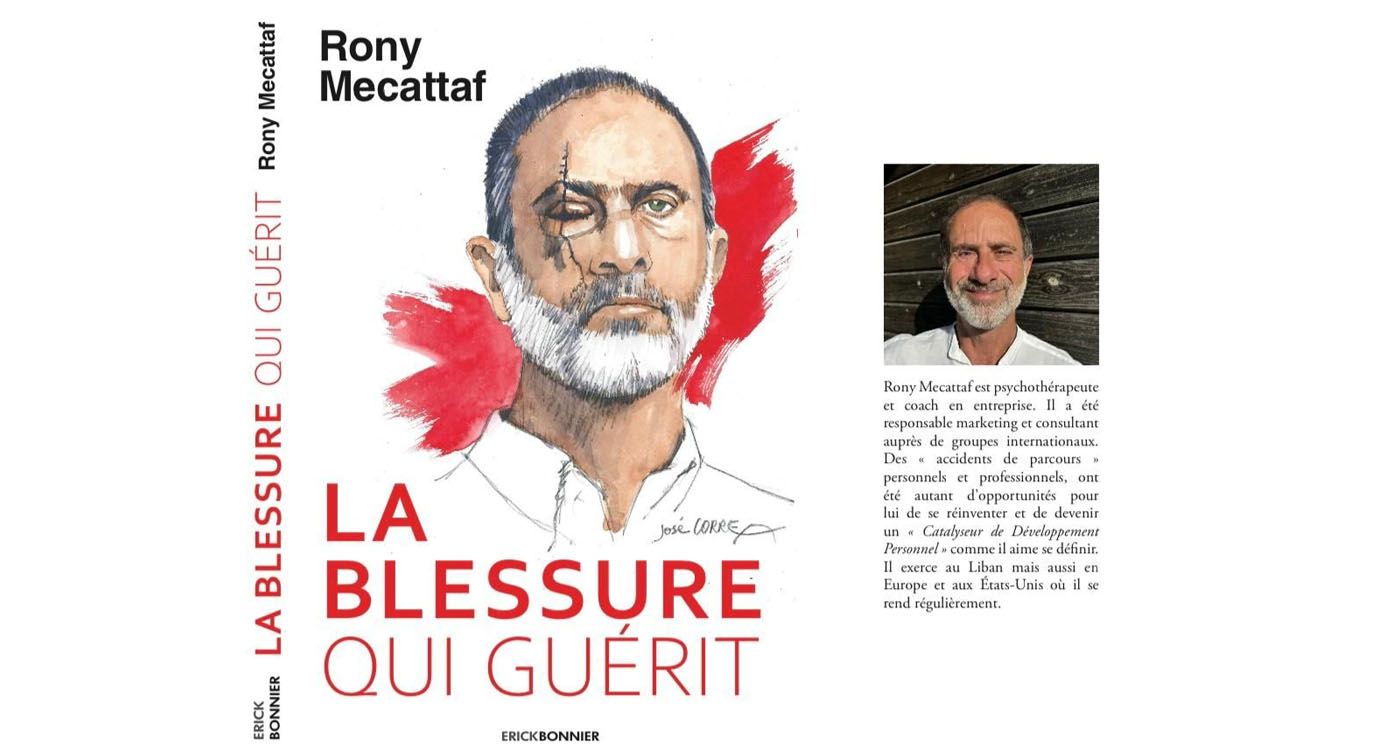
In La blessure qui guérit (“The Wound That Heals”), Rony Mecattaf turns the trauma of the Beirut port explosion into a path of deep inner resilience. This book is the result of three years of writing and blends introspection, spirituality and therapeutic experience to explore what it truly means to heal.
In August 2020, Beirut was devastated by an apocalyptic explosion. Among the injured was psychotherapist Rony Mecattaf, who lost the use of his right eye. What could have remained a silent tragedy became the starting point for a powerful and unconventional narrative: La blessure qui guérit (“The Wound That Heals”), published in March 2025 by Éditions Erick Bonnier.
More than a survival story, this book is a deeply embodied meditation on trauma, inner transformation and the possibility of finding a new meaning when all seems lost. Known in Lebanon for his integrative approach to psychotherapy, Mecattaf weaves together accounts of his wounded body, his healing practices—whether shamanic, psychedelic, meditative or analytic—and an unflinching gaze on the human condition.
When can a wound heal rather than destroy?
Mecattaf responds with much clarity, “As much as the violence and immediacy of the injury defined it, its integration took time. Learning to live with the wound, accepting the permanence of the disability and all its consequences—that took months. Only at the end of this process could I begin to interpret what had happened to me in a new way. This strange idea that the wound might be an opportunity—even a gift—gradually grew within me, and it has deeply transformed my experience.”
In the very moments of the explosion, a surprising emotion surfaced—not fear, but curiosity. Mecattaf explains, “Fear has often been absent from my life, and I can’t really explain why. Maybe it’s in my genes? Or a sort of arrogant belief that I’m always protected… In any case, that day, fear was much less present than the curiosity that made me stay exposed rather than seek shelter which, in hindsight, would’ve been the wiser move!”
How do psychotherapy, shamanism, meditation and psychedelics intersect?
Mecattaf doesn’t aim to rationalize, but simply to bear witness to a lived path. He says, “This book is primarily a personal reflection and testimony. I don’t claim to unify the different modalities I explore, except to say that they’ve all actively shaped and enriched both my professional and personal life. At times, they even clashed within me, or forced me into uncomfortable splits when they seemed contradictory or parallel. But I fully embrace them today as part of what I offer. Let’s just say I’ve moved away from the rigid structures of any single approach in order to invent a way of being in the world that’s more aligned with who I am.”
The long three-year writing process played a key role in this transformation. Mecattaf states, “I’m grateful for this length of time, for the slowness that was imposed on me. I’m naturally impatient. If I had stopped at the first draft, finished 18 months after the explosion, the book would have been less ‘true,’ in the sense that I was still filtering what I said. I think, I hope, that this extra time helped bring more authenticity.”
In this way, writing becomes a form of therapy in itself. And through it, Mecattaf offers readers much more than a personal story. He opens a fragile but resilient path, a way to turn ruins into a space of awakening. At a time when Lebanon is still healing, La blessure qui guérit brings forth a voice that is singular, clear-eyed and serene. A voice that does not claim to hold the solution, but one that knows how to listen to what suffering reveals, within us and around us.
As you go through the pages, it becomes clear that this book is for anyone who has ever been struck. Those seeking meaning after a loss. Those who refuse to remain trapped in the role of the victim. In this way, Mecattaf’s story is profoundly political, in the truest sense: it speaks of our connection to ourselves, to others and to the collective. It urges us not to escape, but to integrate. Not to forget, but to transmute.
One eye was lost, but a wider vision was gained. This is what this book reveals, and why it deserves to be read.
Meet the Author: A book-signing and discussion with Rony Mecattaf will be held in Beirut on May 6 at 5 PM, at No Chef in The Kitchen Café, in Saifi.


Comments